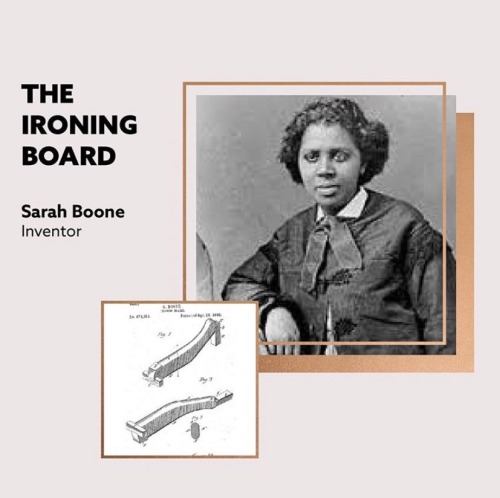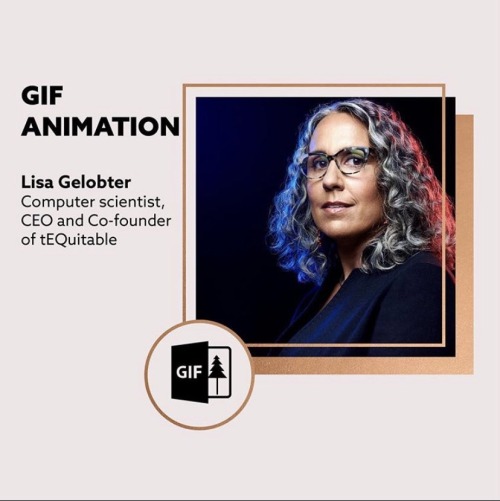My Two Favorite Disaster Fan Trolls


my two favorite disaster fan trolls
not my characters!! They belong to @notedchampagne
More Posts from Thisuserisyou and Others










some fucking resources for all ur writing fuckin needs
* body language masterlist
* a translator that doesn’t eat ass like google translate does
* a reverse dictionary for when ur brain freezes
* 550 words to say instead of fuckin said
* 638 character traits for when ur brain freezes again
* some more body language help
(hope this helps some ppl)







My fanventure had an update yesterday, and I wanted to share some of my favorite panels I’ve done for it so far!
Read it on MSPFA: https://mspfa.com/?s=40925&p=1 Official Tumblr: @untitledfanventure
Webcomic tips
In the conclusion for now, some things I’d really recommend doing if you’re seriously considering making a webcomic (or really a comic in general). Some of these don’t really apply to strips or gag-a-day type of comics, but I’m not talking about those here.
1. Write down ideas\sketch stuff, LEGIBLY. “I’m gonna remember it later” NEVER works. And if you scribble it somewhere on a piece of paper, you’d better scan it or retype in one doc later, because tiny notes always get lost among other doodles in my skethbooks.

(i know it’s hard to keep everything clean and organized, but this mess is just not productive)
If your project is a collaboration, save your conversations. If you’re working alone, make a blog for your ramblings. You have no clue what tears of relief I cry when I open that blog and rememeber I don’t have to painstakingly look through my heaps of sketchbooks and folders for a tiny idea I’m not even sure I wrote down a few months ago.
2. Inspiration folders, or even better, inspo blog with tags also help with collecting and remembering ideas. Color schemes, landscapes, style inspirations, atmospheric stuff, maybe some photo references, all those neat things.

3. Basic tier: character design sheets. Top tier: common poses, expressions. God tier: outfits they wear throughout the comic. Holy cow tier: turnaround sheets for all those outfits.

(I’d die trying to find good pages for references without these)
4. If you haven’t finished detailing the plot, don’t even think about moving on to drawing the comic. You’re gonna regret it when you come up with a really cool plot element that can’t be incorporated anymore because you’ve already drawn all the parts you could’ve tweaked.
5. Don’t just define the plot, make a script. Writing down the lines and the brief description of the actions serves me fine:

(notice that I approximately divided the pages & the text that’d go to each panel on a page)
6. Hard mode: make thumbnails for all the pages, if possible. At least whenever a new chapter starts.
7. If your story involves some convoluted chronology shenanigans, you’d better write down the events of your timeline in the chronological order.
8. Backgrounds. You can’t avoid them, bro. Like half of the comics are backgrounds, especially if your story involves a lot of adventuring and looking around. I know it hurts, but you’ll have to become friends with them. Read some tutorials, practice on photos, go out and sketch some streets, use 3d programs (like Google Sketch) to understand the perspective, use sites like houseplans to visualize your buildings better, I don’t know. Just be prepared for their imminent evil.
9. If you’re drawing digitally, pick a brush size for the lines and stick with it. You don’t want your lines and detail levels to look all wonky and inconsistent in different panels. And I don’t mean the cool stylistic varying lines, I mean this:

Also, things on the background should have thinner and/or lighter lines to avoid distraction. Usually less details too, unless you’re making a busy background with a simple foreground to help it pop out. Or wanna draw the attention to an object on the bg.

10. Readable fonts. Even if you chose to ignore people with poor sight or dyslexia, the majority of your readers aren’t gonna be excited about struggling to decypher this:

Also, as much as I love my black speech bubbles, colorful text on black still kinda hurts the eyes. I wouldn’t recommend doing that for all the characters. Black speech bubbles are usually used for creepy, inhuman voices. And yes, having a colorful outline in this case helps.
11. Probably newsflash, but did you know that panels have their place, order and functions? They do! My favourite thing ever is how I used panels when I was like 12:

(comics ain’t rocket science, but this one is)
The composition of the panels and word balloons always serve for a better reading experience. They guide your eyes over the page, so that you never feel lost or confused. The images in the comic equal frames in a movie, so it’s pretty damn important in what order you look at things and how quickly you can understand what’s going on!

(Eric Shanower & Scottie Young’s Wizard of Oz)
12. One update a week is fine for testing waters. Don’t overestimate yourself, especially if you have a pretty busy life outside it. A stable comic that updates slowly, but regularly is better than an unpredictable erratic one. You can always pick up the pace later, if you feel confident enough.
13. Try to always have a buffer - a couple of pages in reserve. If you’re making the pages much faster than you’re updating, this shouldn’t be a problem. But if those paces are equally the same, it’s goddamn HARD. But on the other hand, if something happens and you skip an update, those come in handy.
If you’re looking at this list and thinking “wow that’s a LOT of work”, you’re totally right. And it’s okay to be intimidated at first! But that’s why it’s important to start with something small. Once you get the formula down, these things will be natural to you.

Happy birthday to the crabby boy!
all I had was this half assed doodle inspired by @vintage-foods
IF YOUR ART GETS STOLEN
https://www.tumblr.com/dmca Go there, and do as the instructions say. When my art was stolen, I got the post reported, and it was taken down. Don’t worry, it doesn’t just take down the sources post, but it takes down all the reblogged posts too. Please give this a reblog, many artists out there may not know this is here. And remember, ask permission before sharing, or don’t post it.



chaotic childern and a doof.
Looking for Something? (Mobile)
Anatomy:
Arms
Breasts
Body Types
Feet
Female
Hands
Heads -Ears -Expressions -Eyes -Facial -Hair -Mouths and Lips -Noses -Tears
Humans
Legs
Male
Muscles
Pelvis
Proportions
Shoulders
Torso
Animals:
Anatomy
Antlers
Beaks
Behaviour
Ears
Facial
Feathers
Fur
Hooves
Horns
Insects
Legs
Paws
Talons
Teeth
Wings
Backgrounds:
Cityscape
Indoors
Organic
Perspective
Quick BGs
Simplistic
Brushes:
Photoshop
Paint tool SAI
Design:
Buildings
Character Design
Clothing
Environments
Folds
Heights
Maps
Names
Sketching
Skin Tones
Drawing and Colouring:
Canvas Size
Colour Palettes
Colour Theory
Comics
Composition
Lighting
Lineart
Painting
Quick Tricks
Shading
Traditional
Fantasy:
Armor
Archery
Horns
Mythical Animals
Mythology
Power Ups
Weapons
Wings
For the Artist:
Copyright
File Types
Exercises
Portfolio
Reminders
Tablets
Tips and Advice
Tools
Languages:
ASL
Ancient
French
German
Grammar
Italian
Japanese
Korean
Morse
Spanish
Misc:
Animation
Commissions
Cosplay
Crafts
Life
Master Lists
Psychological
Resources
School
Writing
Nature:
Blood
Clouds
Fire
Flowers
Grass
Landscapes
Lightning
Metal
Plants
Rocks
Space
Trees
Water
Wood
Poses:
Angles
Animals
Draw Your X
Humans
Movement
Multiple Persons
Programs:
Clip Studio Paint
Krita
Paint Tool SAI
Photoshop
Etc
World Building:
Buildings
Culture
History
Historical Clothing
Video
Links
I AM DEMIROMANTIC! I AM ASEXUAL! THAT'S WHO I AM AND I DON'T WANT TO FEEL ASHAMED OF IT ANYMORE 🥺💚.

!!!TOH SPOILERS!!!
«I won't be alone anymore»
-
 fangirl4lifetime liked this · 1 year ago
fangirl4lifetime liked this · 1 year ago -
 pinkbunny81 liked this · 3 years ago
pinkbunny81 liked this · 3 years ago -
 akiooosama liked this · 4 years ago
akiooosama liked this · 4 years ago -
 dragonpasta liked this · 4 years ago
dragonpasta liked this · 4 years ago -
 watermelon-flavored-fruit liked this · 4 years ago
watermelon-flavored-fruit liked this · 4 years ago -
 invalidcards reblogged this · 4 years ago
invalidcards reblogged this · 4 years ago -
 error-elf-206 reblogged this · 4 years ago
error-elf-206 reblogged this · 4 years ago -
 invalidcards reblogged this · 4 years ago
invalidcards reblogged this · 4 years ago -
 percimel liked this · 4 years ago
percimel liked this · 4 years ago -
 takenusernames liked this · 4 years ago
takenusernames liked this · 4 years ago -
 vvaluiigii reblogged this · 4 years ago
vvaluiigii reblogged this · 4 years ago -
 petrichoreography reblogged this · 4 years ago
petrichoreography reblogged this · 4 years ago -
 buttonpaw liked this · 4 years ago
buttonpaw liked this · 4 years ago -
 floating-pisces reblogged this · 4 years ago
floating-pisces reblogged this · 4 years ago -
 bottle-box liked this · 4 years ago
bottle-box liked this · 4 years ago -
 mitchthehatbitch liked this · 4 years ago
mitchthehatbitch liked this · 4 years ago -
 eruka-nanase liked this · 4 years ago
eruka-nanase liked this · 4 years ago -
 totallynotwaffle liked this · 4 years ago
totallynotwaffle liked this · 4 years ago -
 scientifically-superstitious liked this · 4 years ago
scientifically-superstitious liked this · 4 years ago -
 scoreplings liked this · 4 years ago
scoreplings liked this · 4 years ago -
 aporetic-elf liked this · 4 years ago
aporetic-elf liked this · 4 years ago -
 goldsleeps liked this · 4 years ago
goldsleeps liked this · 4 years ago -
 barbaricjester reblogged this · 4 years ago
barbaricjester reblogged this · 4 years ago -
 infernal-jokesses liked this · 4 years ago
infernal-jokesses liked this · 4 years ago -
 travestyartist liked this · 4 years ago
travestyartist liked this · 4 years ago -
 sweetnsourshortness liked this · 4 years ago
sweetnsourshortness liked this · 4 years ago -
 silver-tongues-blog reblogged this · 4 years ago
silver-tongues-blog reblogged this · 4 years ago -
 child-of-crows reblogged this · 4 years ago
child-of-crows reblogged this · 4 years ago -
 child-of-crows liked this · 4 years ago
child-of-crows liked this · 4 years ago -
 silver-tongues-blog reblogged this · 4 years ago
silver-tongues-blog reblogged this · 4 years ago -
 nynnuendo liked this · 4 years ago
nynnuendo liked this · 4 years ago -
 tj-makes-mistakes reblogged this · 4 years ago
tj-makes-mistakes reblogged this · 4 years ago -
 boxowo liked this · 4 years ago
boxowo liked this · 4 years ago -
 lockedoore liked this · 4 years ago
lockedoore liked this · 4 years ago -
 juiceyjuicey liked this · 4 years ago
juiceyjuicey liked this · 4 years ago -
 broseidon-kingofthebrocean liked this · 4 years ago
broseidon-kingofthebrocean liked this · 4 years ago -
 transmascnepetaleijon liked this · 4 years ago
transmascnepetaleijon liked this · 4 years ago -
 ghosthoodie liked this · 4 years ago
ghosthoodie liked this · 4 years ago -
 peter-the-pan liked this · 4 years ago
peter-the-pan liked this · 4 years ago -
 randomuser678 liked this · 4 years ago
randomuser678 liked this · 4 years ago -
 notedchampagne reblogged this · 4 years ago
notedchampagne reblogged this · 4 years ago -
 aefnnsty liked this · 4 years ago
aefnnsty liked this · 4 years ago -
 backstrokefordaysdude liked this · 4 years ago
backstrokefordaysdude liked this · 4 years ago -
 anomalous-skink liked this · 4 years ago
anomalous-skink liked this · 4 years ago -
 stupid-art-thing liked this · 4 years ago
stupid-art-thing liked this · 4 years ago -
 forgotmynametag liked this · 4 years ago
forgotmynametag liked this · 4 years ago -
 holymotherstick liked this · 4 years ago
holymotherstick liked this · 4 years ago
